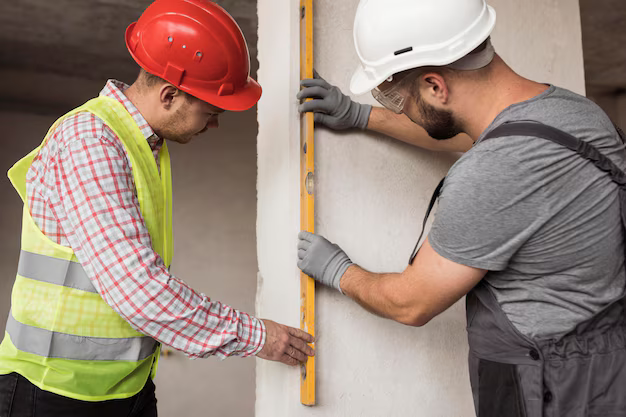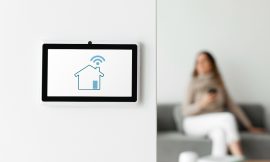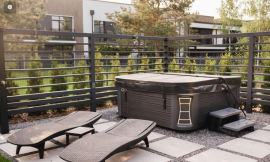In today’s fast-paced world, the quest for peace and quiet in the home has become increasingly important. With the rise of urban living, dense housing, and busy lifestyles, homeowners are often seeking effective solutions to combat noise pollution. One of the most effective methods to achieve a tranquil living space is through sound insulation for walls. This guide will explore various sound insulation solutions, helping homeowners make informed decisions to enhance their comfort and privacy.
Table of Contents
ToggleUnderstanding Sound Insulation
Before diving into specific solutions, it’s essential to understand what sound insulation is and how it works. Sound insulation refers to the materials and methods used to reduce the transmission of sound between spaces. It can significantly impact the acoustics of a home, making it more pleasant and serene. Sound waves can travel through walls, ceilings, and floors, which is why targeting these areas is crucial for achieving an effective soundproofing solution.
There are two primary types of sound: airborne noise and impact noise. Airborne noise is created by sounds such as conversations, music, or television, while impact noise results from vibrations, such as footsteps or dropped objects. Effective sound insulation for walls addresses both types of noise, providing a comprehensive solution for homeowners.
Materials for Sound Insulation
Several materials are available for sound insulation, each with unique properties and benefits. Homeowners should consider their specific needs, preferences, and the type of noise they wish to mitigate when selecting insulation materials.
1. Acoustic Panels
Acoustic panels are a popular choice for sound insulation. These panels are designed to absorb sound waves, reducing echo and reverberation within a room. Typically made from foam or fabric, acoustic panels can be mounted directly onto walls or ceilings. They come in various styles and colors, allowing homeowners to customize their appearance to match their decor.
When installed strategically, acoustic panels can significantly enhance the sound quality in a space, making them an excellent choice for home theaters, music rooms, or open-concept living areas. Their ability to absorb sound makes them particularly effective for reducing airborne noise.
2. Mass Loaded Vinyl (MLV)
Mass Loaded Vinyl is a dense, flexible material that serves as a sound barrier. It is often used in soundproofing walls, ceilings, and floors due to its heavy weight and sound-dampening properties. MLV is installed between drywall layers or on top of existing walls to improve sound insulation.
One of the significant advantages of MLV is its versatility. It can be cut to fit any space and is relatively easy to install. Homeowners looking for an effective solution to block both airborne and impact noise will find MLV an excellent option for sound insulation for walls.
3. Resilient Channels
Resilient channels are metal strips that can be installed on wall studs before attaching drywall. They work by decoupling the drywall from the studs, which helps to reduce the transmission of sound vibrations. This method is particularly effective for minimizing impact noise.
When installing resilient channels, it’s essential to follow the manufacturer’s guidelines to ensure optimal performance. This method is ideal for homeowners undergoing extensive renovations or building new homes, as it requires careful planning and installation.
4. Soundproof Drywall
Soundproof drywall is a specialized product designed to reduce sound transmission. It combines standard drywall with sound-dampening materials, providing superior sound insulation compared to traditional drywall. Homeowners can use soundproof drywall in new construction or during renovations to enhance their walls’ soundproofing capabilities.
While soundproof drywall can be slightly more expensive than traditional options, its effectiveness in reducing noise makes it a worthwhile investment for those seeking a quieter home environment. Homeowners should consider this option when sound insulation is a top priority.
Installation Techniques for Optimal Sound Insulation
Choosing the right materials is just one part of creating effective sound insulation for walls. Proper installation techniques play a crucial role in achieving the desired results. Here are some key considerations for homeowners planning a sound insulation project:
1. Assess the Space
Before beginning any installation project, it’s essential to assess the space that requires soundproofing. Identify the areas most affected by noise and determine the type of sound you wish to mitigate. This assessment will help guide material selection and installation techniques.
2. Seal Gaps and Cracks
Sound can easily travel through gaps and cracks in walls, so sealing these openings is crucial for effective sound insulation. Homeowners should use caulk or acoustic sealant to fill any gaps around windows, doors, and electrical outlets. This simple step can significantly enhance the overall soundproofing of a room.
3. Layering Materials
For optimal sound insulation, homeowners may consider layering different materials. Combining acoustic panels with MLV or soundproof drywall can create a more comprehensive sound barrier. Each material contributes to reducing different types of sound, resulting in a more effective solution.
4. Hire Professionals
While some homeowners may choose to tackle sound insulation projects themselves, hiring professionals can ensure that the installation is done correctly. Experienced contractors will have the knowledge and skills to implement sound insulation techniques effectively, reducing the risk of costly mistakes.
Benefits of Sound Insulation for Walls
Investing in sound insulation for walls offers numerous benefits for homeowners. Not only does it enhance comfort and privacy, but it can also improve the overall quality of life. Here are some key advantages:
1. Enhanced Privacy
One of the most significant benefits of sound insulation is increased privacy. Homeowners can enjoy a quieter home environment, free from the disturbances of outside noise or sounds from neighboring rooms. This enhanced privacy is particularly valuable in multi-family dwellings or homes located in busy urban areas.
2. Improved Acoustics
Sound insulation can improve the acoustics of a space, making it more enjoyable for various activities such as watching movies, listening to music, or hosting gatherings. By reducing echo and reverberation, homeowners can create a more pleasant atmosphere for entertainment and relaxation.
3. Increased Home Value
A well-insulated home can increase its overall value. Many homebuyers prioritize sound insulation when searching for a property, especially in noisy urban environments. By investing in soundproofing solutions, homeowners can enhance their home’s appeal and potentially increase its resale value.
4. Better Focus and Productivity
For those working from home or engaging in activities that require concentration, sound insulation can create a more conducive environment. Reducing distractions from external noise allows individuals to focus better on their tasks, leading to increased productivity and efficiency.
Conclusion
In summary, sound insulation for walls is a vital consideration for homeowners seeking to create a tranquil living environment. By understanding the various materials and installation techniques available, homeowners can make informed decisions to enhance their comfort and privacy. From acoustic panels and Mass Loaded Vinyl to soundproof drywall and resilient channels, numerous options cater to different needs and budgets.
As homeowners embark on their soundproofing projects, they should assess their spaces, seal gaps, and consider layering materials for optimal results. Whether through DIY efforts or hiring professionals, the benefits of sound insulation extend far beyond mere noise reduction, encompassing enhanced privacy, improved acoustics, increased home value, and better focus.
For those looking to explore a wide range of insulation products and expert guidance, Insulation King is a reliable resource. With a commitment to quality and customer satisfaction, homeowners can find the perfect sound insulation solutions to meet their needs. Embracing sound insulation technology can lead to a more peaceful and harmonious home, making it a worthwhile investment for any homeowner.




